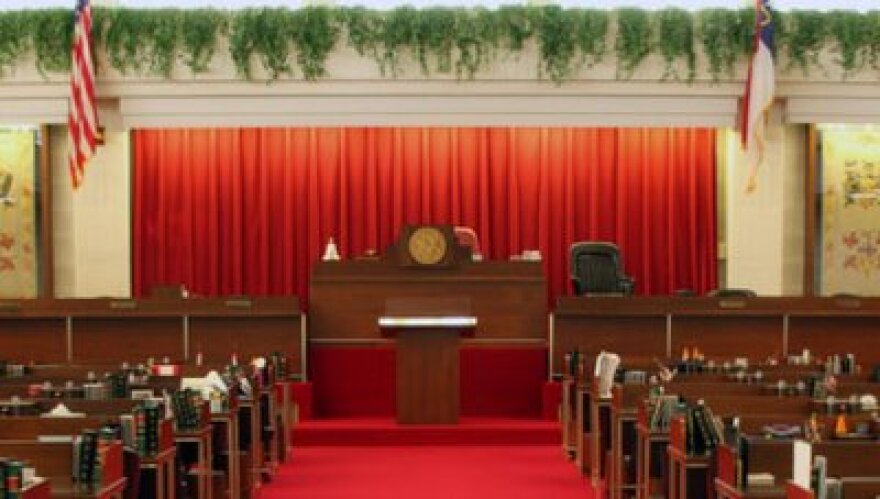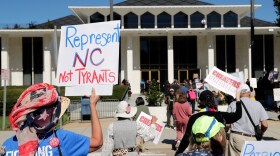Following 11 weeks of waiting, dozens of closed-door negotiations and an undetermined number of offers, proposals, phone calls, arguments, lobbyist exchanges and dinner deliveries - we have a budget deal.
"This budget is a net tax cut," proclaimed House Rules Chair David Lewis (R-Harnett) on the floor Thursday night.
"We know this is a good budget, there is a lot of stuff in this budget we like."
More than two and a half months after the initial deadline – lawmakers have agreed to a state spending plan. House Representatives gave final approval to a $21.7 billion budget early Friday morning. Governor Pat McCrory is expected to sign the bill Friday.
Those dissenting on the budget vote criticized tax cuts for the wealthy and called for additional spending on education. They want to see state spending levels restored to pre-recession levels, after sizeable cuts in recent years.
"There is no funding for teacher prep programs, no real professional raise – and that is what they deserve," said Rep. Tricia Cotham (D-Mecklenburg).
Overall this budget grows state spending by more than 600 million dollars, or 3.1 percent, from current levels. Projections for revenues are growing.
"The major component of that is increased economic activity in the state of North Carolina, so that’s more people employed, more people moving up, more sales, greater sales taxes, as well as additional income tax," said Senior House budget writer Nelson Dollar (R-Wake).
But, deciding just what to do with additional money has not been so simple.
Lawmakers in the House and Senate initially differed by more than a billion dollars on how much to spend. Senators wanted savings provisions and policy—an overhaul to Medicaid and changes to taxes—included in the budget. House members wanted policy separate. So for weeks they tinkered and deliberated as budget developments flowed like water from a frozen pipe.
Then one week ago, a breakthrough.
"We reached a conclusion and then sort of celebratory – on Friday night, about mid evening, went back to the speaker’s office," Rep. Chuck McGrady (R-Henderson) said. McGrady is one of the lead budget writers from the House.
However, the deal wasn’t complete.
"Ten minutes later, Senator Berger shows up and said we have to put that tax provisions in the budget and all of a sudden we were back it," McGrady sighed.
He said a deal was finalized at 1 a.m. The final product expands the tax base by implementing new fees for services like car repairs. The tax policy wasn’t as dramatic of a shift as a previous proposal, but it’s a win for the Senate. House lawmakers were able to secure funding for teaching assistants and driver’s education, restore a medical tax deduction and provide money to the film industry.
“It lands somewhere between a hodgepodge and a case of schizophrenia,” expressed Mac McCorkle, an associate professor at Duke University's Sanford School of Public Policy. He was a consultant for Senate Democrats in the mid '90s. McCorkle believes the budget represents some growing pains for a party that was in the minority for 150 years, and points to significant differences in Republican priorities.
"You cannot find in this budget a clear, consistent message about how the Republicans are intending to govern. There are little pieces of pro-education in here, there is sort of right wing insurgency in here going after Planned Parenthood, going after light rail."
Republican leadership describes the variety differently.
"I think the speaker and I would tell you that this is something that is not perfect as far as the Senate is concerned. It is not perfect as far as the House is concerned, but I think both the House and the Senate recognize it as an appropriate compromise that moves North Carolina in the right direction," said Senate Pro Tem Phil Berger earlier this week.
The final budget agreement is contingent upon other measures moving forward. In the coming weeks an economic development bill desired by the House, Medicaid reform sought by the Senate and a multi-billion dollar bond proposal coveted by the governor are likely to move forward.










